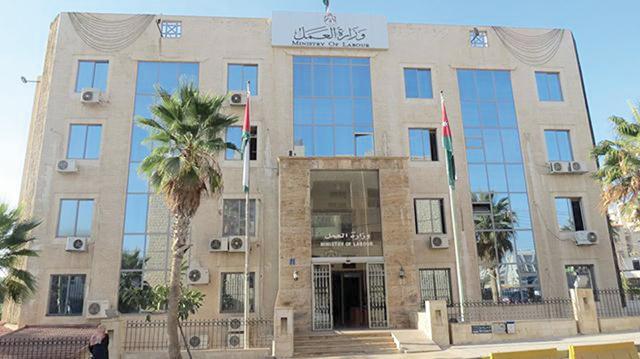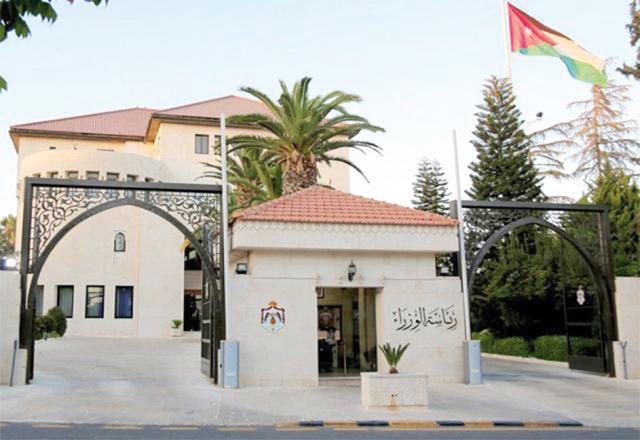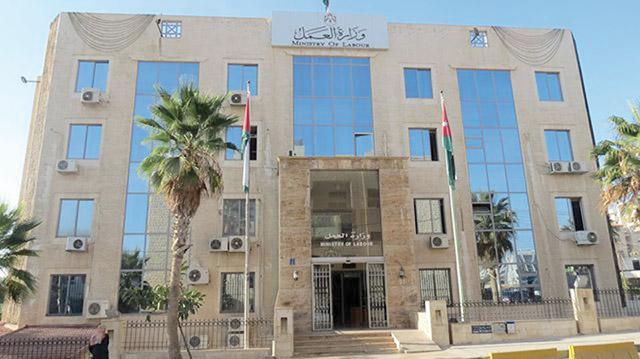You are here
Plan to abolish Labour Ministry evokes mixed response
By Maria Weldali - Aug 01,2022 - Last updated at Aug 01,2022

The government decision to merge the Ministry of Labour with various other ministries has drawn mixed reactions from experts and members of the public (Petra file photo)
AMMAN — The government decision to merge the Ministry of Labour with various other ministries has drawn mixed reactions from experts and members of the public.
The elimination of the Ministry of Labour comes within the government’s framework of modernising the public sector, transferring the ministry’s functions to the Ministry of Interior, the Ministry of Industry, Trade and Supply, and the Ministry of Education and Human Resource Development, that the government plans to establish.
During a press conference at the Prime Ministry on Sunday, Prime Minister Bisher Al Khasawneh said that “the public sector’s services and organisational culture have declined”, which stipulates public sector modernisation that would improve services provided to citizens.
The prime minister also maintained that through the public sector modernisation roadmap the government seeks to reach “an effective and empowered public sector” that stands to improve Jordan and the wellbeing of its citizens.
Speaking to The Jordan Times, sociologist Hussein Khozahe said: “The reason why the Ministry of Labour has been chosen in particular is because the government has got into a critical position where it cannot regulate the local labour market or find real solutions.”
Keeping the Labour Ministry during the ongoing critical situation in the Kingdom would be an indication of the negligence and deficiency in its work, he added.
In the past, governments merged certain ministries which subsequently separated and now are set to be merged again, Khozahe said, noting that Jordanians still do not know the grounds for such decisions,
Khozahe cited official figures showing that 40 per cent of Jordanians who have bachelor’s, master’s or PhD degrees are currently unemployed.
Currently, unemployment rate stands at 23.3 per cent, he said, adding that “not having a Labour Ministry means having no main reference source to all matters related to employment”.
Meanwhile, economist Mahmoud Abdulla said that “having a public sector modernisation process during this challenging time is essential for improving Jordan’s economic situation”.
However, the whole modernisation process should be implemented transparently, while considering citizens’ interests a priority.
In an interview with Al Mamlaka TV, Minister of Planning and International Cooperation Nasser Shraideh said: “The administrative and organisational reform has come to modernise the public sector with Jordan entering its second centennial.”
He added that public sector’s regulatory structure should be flexible and efficient. Regarding the Ministry of Labour, he pointed out that “the cancellation of a government agency does not repeal its regulations”.
A statement by Jordanian NGO Tamkeen for Legal Aid and Human Rights, which was sent to The Jordan Times on Monday, said: “This decision will not be in favour of individuals working in the Jordanian labour market, which is indicative of abuses of labour rights.”
Tamkeen added that the structural changes that are set to take place could negatively impact decent work environment in Jordan, and could increase labour violations.
The decision also evoked various responses on social media platforms. Lina Krieshan, a Twitter user, wrote: “Just a question, is there a country without a Labour Ministry, or is this recommendation exclusive to Jordan.”
Some users believed that the decision is “a late April’s Fool joke”, while others like Jordanian Twitter user Azzam Hadid believes that this decision will reduce the burden on the national budget.
Related Articles
AMMAN — The government’s announcement on Sunday of a plan to merge several ministries and public institutions may not be a feasible action t
AMMAN — Transferring the Labour Ministry’s functions to other governmental entities “will cause chaos in labour market programmes, pol
AMMAN — As countries globally marked World Day against Trafficking in Persons, a recent report by Jordanian NGO Tamkeen for Legal Aid and Hu


















